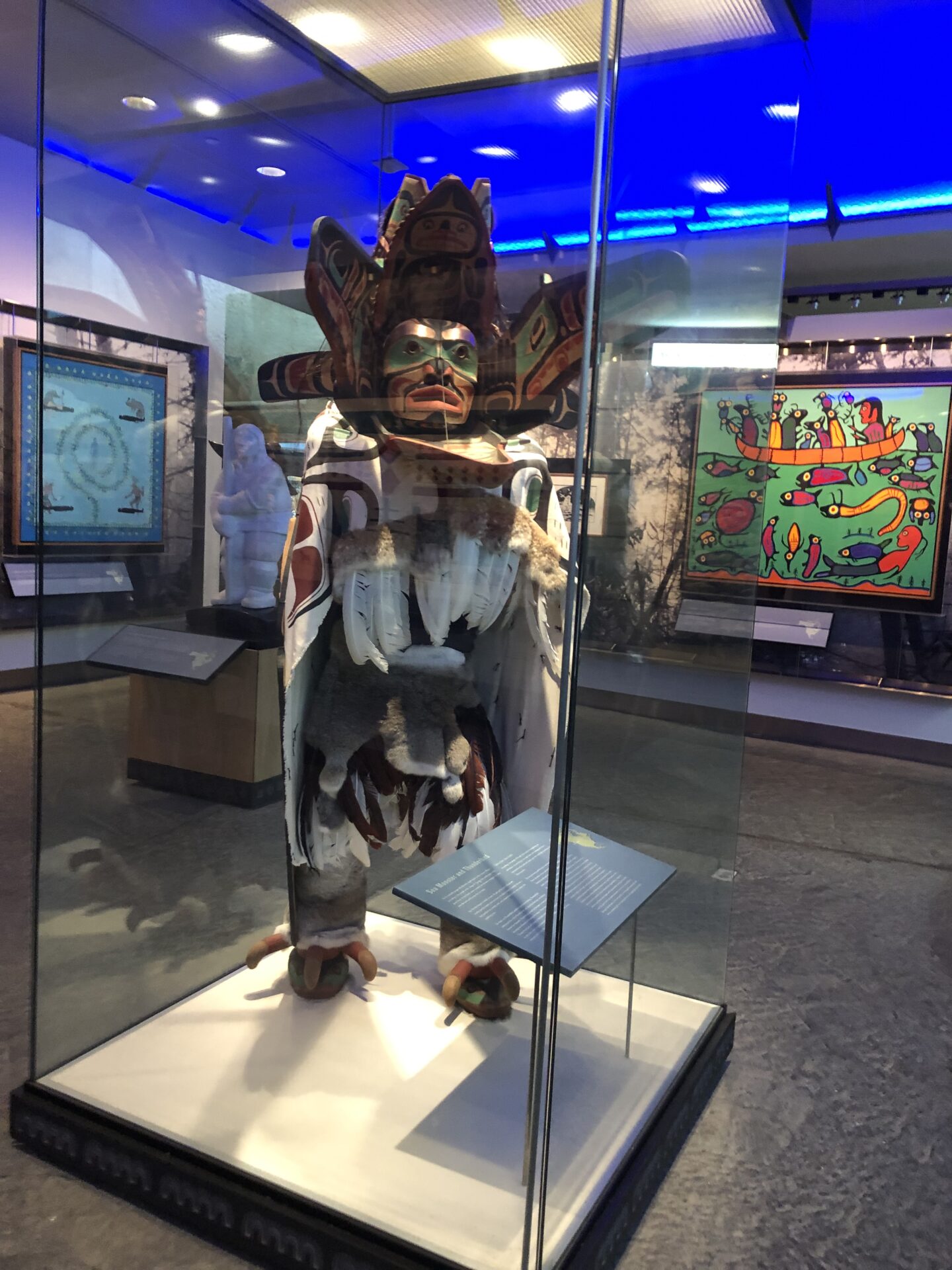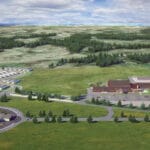The Mashantucket Pequot Museum & Research Center isn’t just a museum; it’s a living testament to the resilience and cultural richness of the Mashantucket Pequot Tribal Nation. Located in Ledyard, Connecticut, on the tribe’s reservation, this 308,000-square-foot complex invites you to explore 10,000 years of history, from the Ice Age to the present day. Through immersive exhibits, interactive displays, and meticulously recreated dioramas, the museum offers a captivating journey through the tribe’s past, its enduring traditions, and its vibrant present.
Experiencing the Mashantucket Pequot Story
The Mashantucket Pequot Tribe’s story is one of survival, adaptation, and the unwavering preservation of their cultural heritage. The museum serves as a powerful vehicle for sharing this story, providing visitors with a deep understanding of their history and their connection to the land. The tribe’s decision to build the museum, the largest Native American-owned museum of its kind in the world and affiliated with the Smithsonian, speaks volumes about their commitment to education and cultural preservation. This probably played a significant role in their resurgence and self-determination, particularly after gaining federal recognition in 1983, a pivotal moment that paved the way for the development of Foxwoods Resort Casino.
Exploring Exhibits and Gardens
Permanent Exhibits: A Chronicle of Resilience
The museum’s permanent exhibits offer a chronological exploration of Mashantucket Pequot history. From pre-European contact to the present day, the exhibits trace the evolution of Pequot life, showcasing their traditions, their challenges, and their triumphs. One of the most striking displays is the meticulously recreated 16th-century Pequot village, the largest diorama in the museum. This immersive exhibit likely offers visitors a glimpse into the daily lives, craftsmanship, and community spirit of the Pequot people centuries ago. Ongoing research may reveal further insights into this period, enriching our understanding of Pequot life.
Temporary Exhibits & Online Experiences: Fresh Perspectives
Beyond the permanent collection, the museum hosts rotating exhibitions that delve into specific aspects of tribal culture. One notable example is the “Neetôpáwees” online exhibit, which provides a poignant exploration of the tribe’s experiences and traditions. This digital offering expands the museum’s reach, allowing audiences worldwide to engage with Mashantucket Pequot history and culture.
Ethnobotanical Gardens: A Living Connection to the Land
The museum’s Ethnobotanical Gardens provide a tangible connection to the natural world. Here, visitors can explore the vital role of indigenous plants in the lives of the Pequot people and other Southern New England tribes. The gardens highlight the medicinal, culinary, and spiritual significance of these plants, offering a deeper understanding of the relationship between people and the environment.
Mission Muhshoon: A Voyage of Rediscovery
The “Nookumuhs,” a meticulously crafted replica of a 17th-century Pequot sailing canoe, stands as a symbol of the tribe’s rich maritime heritage. The “Mission Muhshoon” project, centered around the construction and sailing of the Nookumuhs, brings this heritage to life. It showcases the ingenuity and seafaring skills of the Pequot people, highlighting their ability to adapt, explore, and connect with the waterways of the region.
Planning Your Museum Visit
Essential Information
- Location: 110 Pequot Trail, Mashantucket, CT 06338 (Mashantucket is within Ledyard, CT)
- Hours: Check the museum’s official website for the most up-to-date operating hours.
- Admission: Check the museum’s official website for current admission fees. Consider becoming a Foxwoods Rewards member for potential discounts. As a Foxwoods Rewards Point Preferred Partner, the museum allows you to use points for admission.
- Parking: Free on-site parking is available.
Making the Most of Your Experience
- Allow Ample Time: The museum offers a wealth of exhibits and experiences. Plan to spend several hours exploring the galleries, gardens, and special exhibitions.
- Check for Special Events: The museum regularly hosts events, lectures, and programs. Visit the official website for the latest schedule.
- Dining and Shopping: A restaurant and museum shop are available on-site for your convenience.
The Mashantucket Pequot Reservation: More Than Meets the Eye
While the Mashantucket Pequot Reservation might appear compact on a map, its significance extends far beyond its physical boundaries. The tribe owns land in neighboring towns, including Ledyard, Preston, North Stonington, and New London, demonstrating their economic success and deep connection to their ancestral lands. The Mashantucket Pequot Museum & Research Center offers panoramic views of the reservation and surrounding areas from its observation tower, providing visitors with a sense of the tribe’s presence within the larger landscape. The reservation’s true measure lies in the Mashantucket Pequot Tribe’s cultural and economic impact, exemplified by the thriving Foxwoods Resort Casino and the tribe’s contributions to the region.
Foxwoods Resort Casino: A Symbol of Tribal Resurgence
The Mashantucket Pequot Tribal Nation owns and operates Foxwoods Resort Casino, a symbol of their remarkable resurgence and self-determination. Beginning as a bingo hall in 1986, Foxwoods expanded to include table games in 1992 and slot machines in 1993. Partnerships, including one with Malaysian financier Lim Goh Tong, were crucial to the casino’s development. The tribe shares 25% of its slot revenue with the state of Connecticut, a mutually beneficial agreement that has contributed to both the tribe’s and the state’s economies. Foxwoods generates revenue that funds essential social programs, cultural preservation initiatives, education, and healthcare for the Mashantucket Pequot community.
While the exact acreage of the reservation is not readily available, the tribe’s impact transcends mere size. Their story is one of resilience, adaptation, and the preservation of cultural heritage, a story powerfully told within the walls of the Mashantucket Pequot Museum & Research Center.
Curious about the current water levels? Check out the latest information on the Oologah Lake level. Planning a trip to Maine? You’ll need the correct Orono zip code for your correspondence.
- Atlanta Fajr Prayer Times: A Comprehensive Guide for 2024 - December 4, 2024
- Buffalo Prayer Times: Current Salah Schedule & Monthly Timetable - December 4, 2024
- Atlanta Fajr Prayer Times: A Comprehensive Guide (2025) - December 4, 2024
















